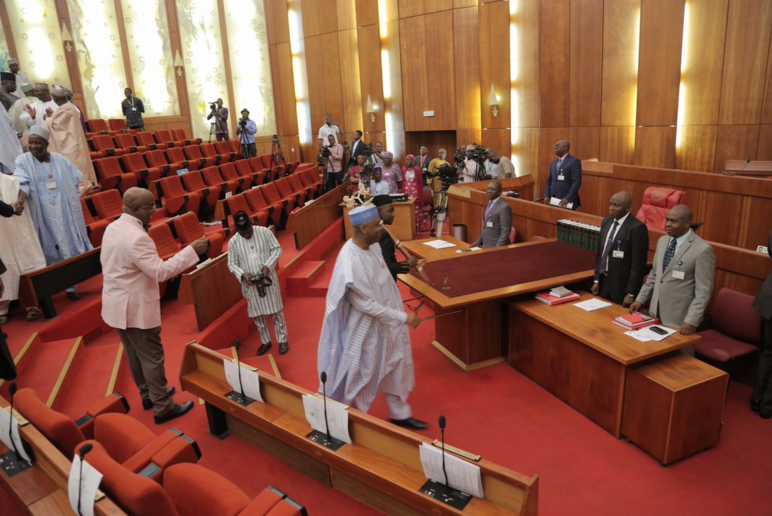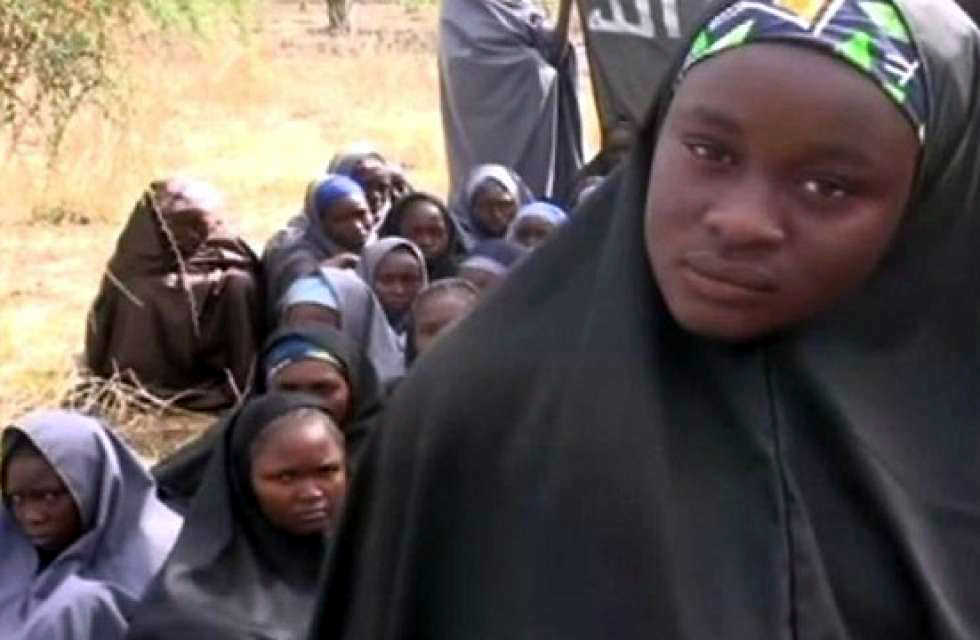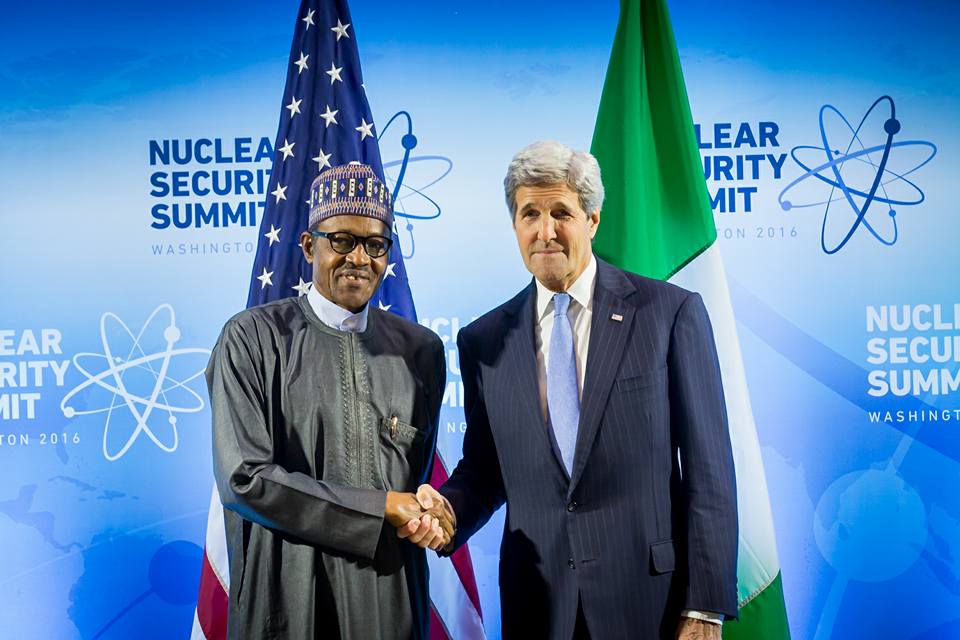After studying the “Gender and Equality Opportunity Bill,” I could clearly see the reason it was so easy for the Senate to throw it out. Unfortunately, the Senate itself has not come forward with these reasons. Perhaps worse still, those who have expressed outrage at the Senate’s decision have also failed to make the right arguments beyond the righteous indignation and gender activism rhetoric. Thus, we are about to miss another glorious opportunity to have a real debate on a matter that is at the very heart of our social progress.
The Senate President, Bukola Saraki, has said the Bill could be re-introduced. We must not miss the opportunity to make the right case and hope that the Bill would meet with better luck second time around. No doubt, the “Gender Bill” initiated by Senator Biodun Olujimi is well intentioned, and she should be commended for it. However, in any active democracy, no bill would sail through the parliament on account of its good intentions alone. More so, we should all be worried if our Senators would pass a law only because it is the politically correct thing to do, or because they want the public to clap for them and not because the law, at least in normative terms, would help in achieving the kind of society that we intend to build or the kind of values that we desire to promote.
What are the qualities of a good law? One, it must be necessary. There have to be real issues or problems that the law intends to address, and which no law in existence at the time has adequately covered. Two, it must be acceptable. It must be an expression of the will and aspirations of the people. Three, it must be enforceable. If people break the law, enforcers should be able to catch and punish them. There are others. However, even on these three basic principles alone, this Gender Equality Bill is hugely deficient. Any casual reader would find that a significant part of it read more like a communique of a gender seminar than a piece of legislation! However, if we ignore the letters and focus on the spirit, that is when the importance of this bill becomes really obvious, and the decision to revisit it becomes quite pertinent.
The Bill can be divided into two broad categories. The first component would contain those provisions that seek to protect the rights and privileges of women in public life and promote economic and political participation by women. These include prohibition of discrimination and promotion of equality and equal treatments of all persons in law regardless of their gender; elimination of discrimination in political or public life, access to education or employment opportunities. There are other provisions as well. All of them are however targeted at one general objective: elimination of all legal and extra-legal barriers that have denied women full recognition and equal rights as productive and reproductive agents. The second component are those that seek to protect and promote the social and economic rights and privileges of women in the private or domestic arena. This include issues of marriage and family relations; widowhood, inheritance, divorce, custody of children, domestic violence and abuse, trafficking in women, minimum age of marriage and the rights to abortion under specified conditions.
Advertisement
Section 8 of the Bill states in part as follows: “Every organ or agency of government, public or private institution…shall ensure to women, on equal terms with men, the right to; (a) participate fully in all political activities, including the right to vote and be voted for in all elections and public referenda, and to be eligible for election to all publicly elected offices and bodies without any restriction, limitation or barriers whatsoever, (b) participate in the formulation of government policy and the implementation thereof and to hold public office and perform all public functions at all levels of government, (c) be given on equal terms with men and without any discrimination…the opportunity to represent such organ or agency of government… or to represent the Federal Republic of Nigeria or any part of the federation…without any restriction whatsoever.”
Like some of the Senators have argued, it is easy to see that much of the problems that these laws seek to address are already taken care of by existing laws, and the rights that the Bill seeks to confer on women are those already guaranteed in our constitution. It is tempting on the face of this argument therefore to dismiss the Bill as superfluous. But this would be wrong. While existing laws and the constitution may have addressed these issues; they have not solved the problems. Factors that inhibit the participation of women in politics or public life remain entrenched as ever.
For example, no political party would officially pursue a policy that keeps women out public life. And there is nothing in our laws or in any rules guiding public or corporate institutions in our country today that bar women from participation or representation. However, the reality is that the quality of women participation in public life does not reflect their demographic strength. The Senate itself present the best example this limitation, where out of 109 Senators only 7 are women. Why is this so?
Advertisement
Despite the constitutional rights to participate in public life, which is ordinarily conferred on every citizen regardless of gender, women have still found it extremely difficult to access political or public office. This is not because they don’t want to or they lack the capacity, but because they usually lack the resource or the social capability to do so. Like Armatya Sen argued, “the functioning of each individual, the activities that one may undertake, depends on the set of actual capabilities with which one is endowed by a broad constellation of social factors.” In other words, we cannot argue that women have the right or freedom to participate in politics or public life when they are deprived of the resources to exercise such right or freedom.
Therefore, even when political parties and government have not deliberately instituted any barriers to close the space to women participation, other critical and non-systemic factors may still retard the participation of women. Access to resources is about the most important factor. And these touches on the larger social arrangements in our country and how this empower or disempower women. This factor is even likely to affect women in more significant ways in the years ahead. How the expansion of the market economy in Nigeria will affect the entire issue of women empowerment is a major problem that gender experts must continue to grapple with. As public sector reforms roll back the government and push the market forward, all the support systems and state-backed interventions that potentially discriminate in favour of women may also be eroded if deliberate actions are not taken to preserve them. Obviously, when the market is trusted with social arrangements and resource allocation, only the fittest would survive. And in the contest for resources between men and women, there can only be one loser. Like one writer noted, in any market arrangement, “competition and choice could become the new rationale for legitimising the dominant male presence in politics and government.” The changing circumstances of market reforms therefore, will likely lock out more women from means of production and therefore, by extension deny them the necessary resources for political participation. If women are less educated, it is only natural that men will outnumber them in public life. The same if they have less access to resources. And if women have to also devote more time for domestic and family task, it is only natural that they will have less time for actively engaging in public political activities, the so-called “double-burden.”
It would probably still take a long term for us to come to terms with the need to free women from domestic tasks to participate in public life. Despite the almost radical redefinition of the role of women as evidenced by the increase in number of career women in recent years, it remains that most women still have to choose between family and public life. This dilemma is even likely to be more compounded by the recent explosion in religious practices with its pacificatory implications for women and its tendencies to frame women in terms of their reproductive roles and spousal commitments alone. All these are problems that have to be tackled outside the formal political or legal arrangements. They are hardly issues for legislation.
The Norwegian experience could come handy here. In the Scandinavian country, the state had to get more involved in the task of child rearing and giving parental incentives, essentially in order to free women for more public activities. This include children centres; 50,000 of which was built in the five-year period from 1975 to 1980 as a means of facilitating women’s access to the labour markets. Norway could be still be far off, but it is a useful pointer to the kind of solution that those that are interested in women participation must work towards.
Advertisement
Some women have wondered why Nigeria that found it expedient to adopt such policies as quota system, federal character and such mechanisms of diversity management, has found it difficult to adopt affirmative action as a broad based policy for supporting women. This connection is quite interesting. However, for us to deal with women issues along a similar line, we have to start by asserting gender as a distinct social and even political constituency and we have to do this through a more sophisticated articulation of the issues around women participation. This is not a job for the lawmakers alone. It cannot even be a task for women alone. Certainly, we need to bring more credentials to the gender debate than just our anatomies!
In recognising gender as a political constituency, we must be willing to take a critical look and have the courage to review institutionalised basis for male power and privilege. Like Naila Kabeer has argued, “any political or policy planning that bring women in as passive recipients rather than active contributors, clients rather than agents, reproductive rather than productive, would not have addressed the core issues of altering the power relationship between men and women in the public arena.” Yet, altering this power relationship is central to leveling the field and creating the room for women to be active economic and productive agents, able to mobilise resources and means to compete on equal terms. Arguing that women should be treated on equal terms with men in political life, as things stand, is counter-productive. A push for equality without altering the power dynamics ultimately disadvantages women. You cannot speak of equality in a contest between two unequal actors. This Bill tip-toed around the issue of positive discrimination, almost apologetically. This needs not be so. A deliberate policy of discrimination in favour of disadvantaged people within a society is the foundation for equity and justice. This however has to be framed in a way that would be understood by all that women empowerment does not necessarily translate to male disempowerment.
What we have experienced in recent years, especially the so-called state-derived feminism serves only the selfish interests of an elite class. We have witnessed how the discourse of feminism was hijacked by wives of strongmen who created all manners of ‘poverty alleviation’ schemes that were primarily designed to mobilise women for the legitimisation of military dictatorship in the country. Rather than scouting for agents of change, it appears that what is needed is first locating the process, and agencies that would address themselves to this process. This why the National Assembly must readdress itself to this Bill and salvage something for women.
What is at the heart of the matter is always how men think about women and how women think about themselves in relation to political power. Women’s own psychological internalization of inferiority would continue to constitute as much barrier to the quality of women’s political participation as men’s domination of women. As long as the few powerful women continue to understand women participation in terms of how many women are dressed up in Aso-ebi and herded into political rallies, women cannot have the right champions in the corridors of power.
Advertisement
The second major component of this Bill, which focusses on the rights and privileges of women within the family was always going to be trickier. Even men who actively defend the rights of women start to demur when they have to make adjustments to the power relationship within their families. This is where the issue of rights of women get entangled in cultural values. The moment this Bill ventured into the family arena; it stepped on entrenched cultural toes. This was a highly contested terrain from which it was always not going to come out alive. The failure of the sponsor to recognise these and build a strategic coalition of support to help her maneuver around entrenched prejudices and strongly held cultural values that the Bill was challenging was a major failure on her part.
The Bill, under section 12 (c), Elimination of Discrimination in the Field of Health states that the “government shall protect the reproductive rights of women to terminate a pregnancy in cases of sexual assault, rape, incest, and where the continued pregnancy endangers the mental and physical health of the mother or the life of the mother or the foetus”. Abortion remains a highly contentious issue the world over. In many countries, a candidate or a political party’s position on abortion can make the difference between victory and defeat. When you throw abortion into a Bill that seeks to protect the rights of women, you run the risk of having the baby thrown out with the bathwater.
Advertisement
In 2012, Imo State House of Assembly passed a law, innocuously cited as the “Violence Against Persons (Prohibition) Law Number 12 of 2012.” Because of its controversial provision on abortion, which was almost identical with this Bill, it was soon reduced to “Abortion Law.” The governor, Rochas Okorocha has to beat a quick retreat when he faced serious fire from the Catholic Church and pro-life activists in the State. The law was promptly repealed alongside other less contentious provisions that would have helped to protect women against violence in the state. Senator Olujimi should have advised herself with this history.
However, it is important to point out that, more often than not, when men oppose any law or policy that seeks to alter the power relation between men and women within the domestic sphere, they merely affirm traditional customs and practices in relation to women. Therefore, unless these practices, which are sometimes rooted in people’s value system are themselves altered, any attempt to curb them with the instrumentality of laws, would always be vehemently resisted.
Advertisement
This brings us to the issue of Islam and gender. Some Senators have argued that they were opposed to the Gender Bill because some of its provisions contradicts the Shari’a. By anchoring their opposition to the Bill wholesale on Shari’a, the Senators have provoked the traditional reflex antagonism to Islamic law and opened the floodgate for the not-so-subtle attack on the religion of Islam. It is important to argue however that if any law contradicts the Shari’a, Muslims have the right to object to it, just as the Catholics would always be justified to oppose any law seeking to legalise abortion. After all, a law is an expression of the values held by a people.
However, we should be clear that there is nothing inherently incompatible between Islam and gender rights, just as there is nothing contradictory between Islam and democracy. I recall that after the United Nations Beijing Conference on women in 1995, some Muslim countries were sternly opposed to and refused to ratify the Convention for the Elimination of Discrimination Against Women (CEDAW). Gender rights activists in these countries sat down and analysed the Qur’an which is the chief source of Islamic laws. What they found was simply startling. They found that the Qur’an, actually have granted women more rights than even the CEDAW; even though they also found some portions of the Holy Book that they were not happy with, but which, taken together, formed the basis for negotiation in the efforts to domesticate and therefore have the Convention ratified by their countries.
Advertisement
Under “Modification of socio-cultural Practices,” section 7 of the Bill states that a “widow shall not be subjected to inhuman, humiliating or degrading treatment.” It also states that a “widow shall have the right to remarry, and in that event, to marry the person of her choice.” Qur’an 4:19 states thus: “You who believe, it is not lawful for you to inherit women against their will, nor should you treat your wife harshly, hoping to take back some of the bride-gift you gave them, unless they are guilty of something clearly outrageous. Leave them in accordance with what is fair and kind: if you dislike them, it may well be that you dislike something in which God has put so much good.” On violence against women, the Qur’an states in 4:128, “If a wife fears high-handedness or alienation from her husband, neither of them will be blamed if they come to a peaceful settlement, for peace is best.” On inheritance, Qur’an states in 4:7, “Men shall have a share in what their parents and closest relatives leave, and women shall have a share in what their parents or close relative leave; whether the legacy be small or large. This is ordained by God.”
On the contentious issue of women’s reproductive rights, it is interesting to see how much leverage the Qur’an gives to women, even in deciding whether to breastfeed her child or not. Qur’an 2:233 states thus: “Mothers suckle their children for two whole years, if they wish to complete the term, and clothing and maintenance must be borne by the father in a fair manner. No one should be burdened with more than they can bear: no mother should be made to suffer harm on account of her child, nor any father on account of his. The same duty is incumbent on the father’s heir (if he dies). If, by mutual consent and consultation, the couple wish to wean [the child], they will not be blamed, nor will there be any blame if you wish to engage a wet nurse, provided you pay as agreed in a fair manner. Be mindful of God, knowing that He sees everything that you do.” The notion of “mutual consent and consultation” here implies equality between the couple, as there would be no need for consultation and consent if the God intended the relationship to be that of subordination. By the way, there is nothing in Islam that compels a woman to drop her maiden name for her husband’s family name after marriage.
There are so many other provisions in the Qur’an that affirm rather than deny the rights of women. I believe there would be women-focused NGOs who have done some work in this area. They need to come forward and work with Senator Olujinmi in moving this Bill forward. For too long, people have hidden under the banner of religion to give expression to their syncretic traditions or practices. Their real cover however, is the ignorance of the majority of what the Holy Books actually said or the conspiratorial silence of men who should know. It is about time we shined the light of knowledge in their hiding corners and dismantled the culture of silence.
Perhaps, another major drawback of this Bill is that it attempts to solve all the problems confronting women with a single piece of legislation. Moving forward, we should have a more nuanced understanding of what legislation can realistically achieve and what has to be tackled through executive policy and social advocacy, especially among religious groups. For now, the Bill should be streamlined towards achieving incremental change not a total revolution. No matter what we do, the reality is that men will remain on the driver’s seat for a long time to come. But the purpose that a bill like this could serve, is to provide women with some kind of zebra crossing in both the public and the private arena. Even then, women would still need to look left, right and left again as they move forward because there would always be men who would continue to drive around wearing blinkers.
Abdullahi is former minister of youth development and sports
Add a comment







